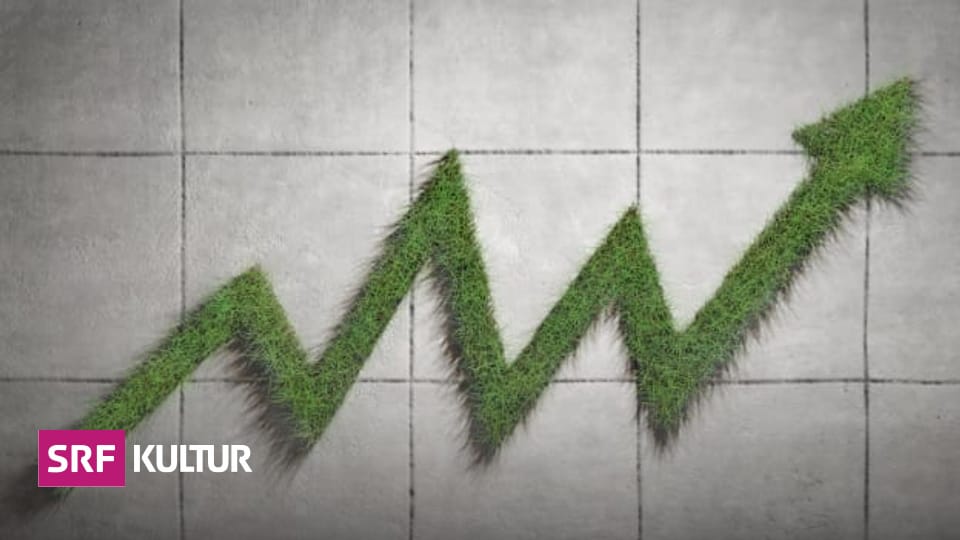Contents
Eco-investing is becoming increasingly popular in Switzerland. A guilty conscience doesn’t play the only role.
Almost 20 years ago, people in Switzerland invested around 5 billion francs in sustainable investments. Now there are over 100 times more. At the beginning of 2023 it was around 694 billion, and therefore over half of all investment products in Switzerland with a sustainability connection.
However, how sustainable an investment is can vary. So far there is no uniform and internationally comparable one Standard.
What do I want with my money?
But why are sustainable investments so popular? In research, a distinction is made between three reasons, says Julian Kölbel, assistant professor of sustainable finance at the University of St. Galle: “You want to make a difference or reflect your own values.” The latter is typically formulated negatively. So you don’t want to invest in certain industries such as gambling, alcohol production or weapons production.
Another motivation is financial: that you want to keep your risk low due to climate change. For example, people are already exiting investments related to fossil fuels and investing in renewable energies.
What kind of money do I invest?
According to one Study by the University of Zurich More people want to reflect their values and have a clear conscience instead of actually relieving the burden on the environment. However, if the focus is on impact, it is worth investing in small companies.
How to recognize “greenwashing”
Open box Close box
The media often talks about “greenwashing”: so-called sustainable investments are not as green as they claim to be. As a customer it is often difficult to check this. Julian Kölbel recommends asking banks or asset managers, for example:
Which companies are included in sustainability funds? Why exactly this? What criteria and methods do the ethics analysts or sustainability analysts of a financial institution use to select and classify the companies? Does the bank engage in so-called engagement, i.e. is it in dialogue with the company in which it invests? What do we talk about then? What does the escalation process of the company dialogue look like if a company does not become more sustainable or better as promised? Have there been cases where a company was removed from the portfolio?
As a first step, such questions could help to determine how serious a financial institution is about sustainable investments.
“If a large Swiss company needs capital, it has no problems getting it,” explains Julian Kölbel, “Start-ups, on the other hand, often have big problems getting capital.”
That’s why for small companies, the money invested makes a bigger difference and has a greater impact. “But you also have a greater risk,” emphasizes Kölbel. “So you have to think carefully about whether you can cope with the fact that the money might be gone in the end.”
Gone because the company may not be able to assert itself on the market as well as hoped. When making sustainable investments, it is also worth considering what kind of money is being invested and what risk may be accepted – is it the nest egg for retirement provision, the savings or inheritance that is left over and is being invested.
“Make an important contribution”
Julian Kölbel advises, as with conventional investments, to invest the money in various ventures. «If you want to change something, you can invest part of your assets in a small project that really makes a meaningful contribution to the environment. The other part is invested fairly securely so that I don’t have to starve if the sustainable investment doesn’t work out.”
What are the ESG risks?
Open box Close box
Anyone who deals with sustainable investments will quickly come across the so-called ESG risks: The abbreviation is derived from English and means environment, social and corporate governance.
Sustainability therefore refers to both ecological aspects and others. However, these ESG criteria are controversial among experts. Some financial institutions interpret them very generously, weight them differently or want to go further and define their criteria more strictly.
An impact can be achieved above all if as many people as possible invest money sustainably. But you shouldn’t overestimate it either, Kölbel differentiates: “In the end, in order to solve big problems like climate change, it’s a big interaction between politics, capital, technology, innovation and so on. But I think sustainable investing can make an important contribution.”
The cultural highlights of the week in the newsletter
Open box Close box
Discover inspiration, stories and treasures from the world of culture: every Sunday, straight to your inbox. Subscribe to newsletter now.
Radio SRF 1, meeting point, March 19, 2024, 10:03 a.m.
